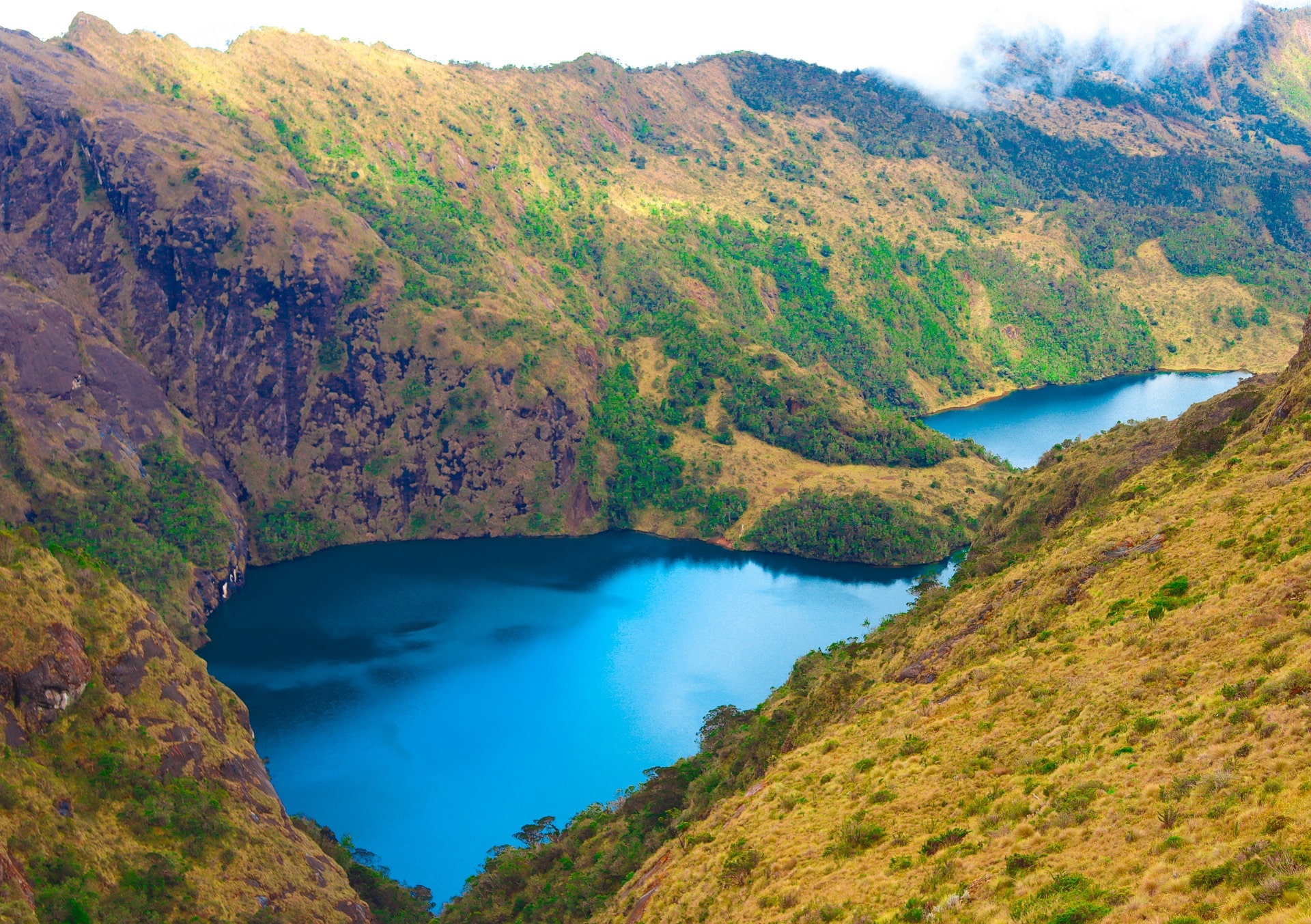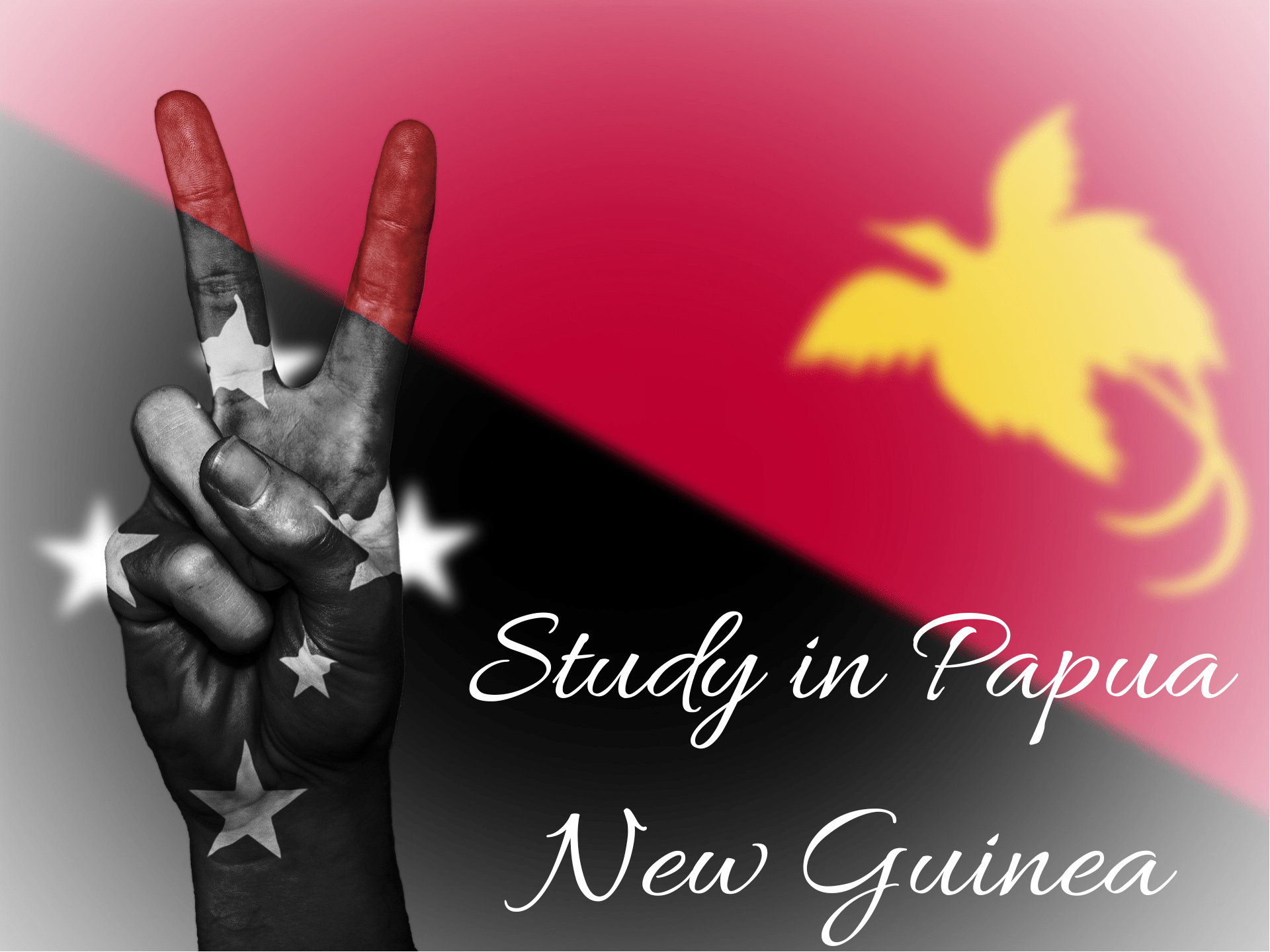
Why should you consider studying in Papua New Guinea?
Why Papua New Guinea?
There are several reasons why you should consider studying in Papua New Guinea. Here are some of the key reasons:
- Quality Education: Papua New Guinea has several reputable universities and colleges that offer quality education. Studying in Papua New Guinea can provide you with access to world-class education and training opportunities in various fields.
- Affordable Education: Compared to many other countries, the cost of studying in Papua New Guinea is relatively affordable. The cost of living is also relatively low, which can make it easier for you to manage your expenses while studying.
- Career Opportunities: Papua New Guinea is a developing country with a growing economy. Studying in Papua New Guinea can provide you with access to career opportunities in various sectors, including education, healthcare, finance, tourism, and agriculture.
- International Exposure: Studying in Papua New Guinea can offer you the opportunity to meet and interact with people from different countries and cultures. This can help you develop a global perspective and broaden your understanding of the world.
- Cultural Diversity: Papua New Guinea is a culturally diverse country with over 800 languages and a rich history. Studying in Papua New Guinea can offer you the opportunity to immerse yourself in a unique cultural experience and gain a deeper understanding of different cultures.
- Natural Beauty: Papua New Guinea is known for its natural beauty, including stunning beaches, lush rainforests, and diverse wildlife. Studying in PNG can offer you the opportunity to explore the country’s natural wonders and engage in outdoor activities such as hiking, snorkeling, and bird-watching.
It’s important to note that studying in Papua New Guinea may also have its challenges, such as adapting to a new culture and environment. However, with proper preparation and an open mindset, studying in Papua New Guinea can be a rewarding and enriching experience.
What are the best courses to study in Papua New Guinea?
Papua New Guinea has a variety of educational institutions that offer a wide range of courses at various levels. The best courses to study in Papua New Guinea largely depend on your interests, career goals, and educational background. However, here are some of the most popular courses in Papua New Guinea:
- Business and Management: Courses in Business and Management are popular in Papua New Guinea as they provide skills and knowledge that are relevant to the country’s growing economy.
- Information Technology: With the world becoming increasingly digital, courses in Information Technology are in high demand. Papua New Guinea’s technology sector is rapidly growing, and a course in IT will prepare you for a career in this field.
- Education: Papua New Guinea has a strong focus on education, and there is always a need for qualified teachers in the country. Studying Education will equip you with the necessary skills to teach at all levels, from primary to tertiary.
- Nursing and Health Sciences: Papua New Guinea has a shortage of qualified healthcare professionals. A course in Nursing or Health Sciences can lead to a fulfilling career in this field.
- Engineering: With the country’s increasing infrastructure development, there is a demand for engineers in Papua New Guinea. Studying Engineering will prepare you for a career in fields such as civil engineering, electrical engineering, or mechanical engineering.
These are just a few examples of popular courses in Papua New Guinea. It’s essential to research the institutions and courses thoroughly before deciding on what to study.
Top Universities in Papua New Guinea
Papua New Guinea has several tertiary institutions, including universities and colleges. Here are the top universities in Papua New Guinea according to the Edurank rankings:
- University of Papua New Guinea (UPNG): Established in 1965, UPNG is the oldest and largest university in Papua New Guinea. It offers undergraduate and postgraduate programs in a variety of fields, including business, social sciences, law, medicine, and natural sciences.
- Papua New Guinea University of Technology (PNGUOT): PNGUOT is a leading technical university located in Lae. It specializes in engineering, applied science, and technology, offering programs at both undergraduate and postgraduate levels.
- Divine Word University (DWU): DWU is a Catholic university located in Madang. It offers programs in various fields, including business, education, health sciences, social sciences, and theology.
- Pacific Adventist University (PAU): PAU is a Seventh-Day Adventist institution located outside Port Moresby. It offers undergraduate and postgraduate programs in various fields, including business, education, health sciences, and theology.
- University of Goroka (UOG): UOG is located in the Eastern Highlands Province and is the only university in Papua New Guinea specializing in teacher education. It also offers programs in other fields, including agriculture, environmental science, and social sciences.
These universities have a reputation for providing quality education and are accredited by the Papua New Guinea National Academic Accreditation and Recognition Committee (NAARC).
How to study in Papua New Guinea?
If you’re interested in studying in Papua New Guinea, here are the general steps to follow:
- Research the universities and colleges in Papua New Guinea: Look for the courses they offer, their admission requirements, tuition fees, and other relevant information. You can find this information on their websites or by contacting their admissions offices.
- Choose the course and university you want to apply to: Consider your interests, career goals, and educational background when selecting a course and institution.
- Check the admission requirements: The admission requirements may vary depending on the institution and course. Typically, you will need to provide your academic transcripts, certificates, and English language proficiency test results.
- Apply to the institution: Once you have chosen the institution and course you want to study, you can apply directly to the university or college by completing their online application form or submitting a hard copy of the application form. Make sure you meet the application deadline.
- Receive the admission offer: If you meet the admission requirements, you will receive an admission offer from the university or college. You will need to accept the offer and pay the tuition fees to secure your place.
- Apply for a student visa: International students will need a student visa to study in Papua New Guinea. Check with the Papua New Guinea immigration department for the visa requirements and application process.
- Arrive in Papua New Guinea: Once you have obtained your student visa, you can travel to Papua New Guinea and begin your studies.
It’s important to note that the process may vary depending on the institution and course you want to study. It’s always advisable to check with the university or college for specific admission requirements and procedures.
Essential Requirements
To study in Papua New Guinea, there are several essential requirements that you must meet. These requirements may vary depending on the institution and course you want to study but generally include:
- Academic qualifications: You must have the necessary academic qualifications to study at the university or college of your choice. This may include a high school diploma or equivalent, as well as any specific prerequisites for the course you wish to study.
- English language proficiency: You must demonstrate English language proficiency by providing evidence of achieving a certain level of proficiency on an approved test, such as IELTS, TOEFL, or PTE. The required minimum score may vary depending on the institution and course.
- Visa: International students must obtain a student visa to study in Papua New Guinea. You will need to apply for a student visa through the Papua New Guinea Immigration and Citizenship Authority.
- Tuition fees: You must pay the tuition fees required by the institution you wish to attend. These fees will vary depending on the institution and course you choose.
- Health and medical requirements: Some institutions may require you to undergo a medical examination and provide evidence of immunizations and vaccinations before enrolling.
- Accommodation: You may need to arrange accommodation before arriving in Papua New Guinea. Some institutions offer on-campus accommodation, while others may assist in finding suitable off-campus accommodation.
- Travel arrangements: You will need to make travel arrangements to Papua New Guinea, including booking flights and obtaining travel insurance.
It’s important to check with the institution you wish to attend for the specific requirements for your chosen course.
The estimated cost of fulfilling your study abroad dream
The cost of studying in Papua New Guinea can vary depending on the institution, course, and location. Here are some of the costs you can expect to incur as a student in Papua New Guinea:
- Tuition fees: Tuition fees in Papua New Guinea can vary depending on the institution and course you choose to study. Generally, the tuition fees range from PGK 4,000 to PGK 20,000 per year for undergraduate courses, and PGK 10,000 to PGK 30,000 per year for postgraduate courses.
- Accommodation: The cost of accommodation can vary depending on the type of accommodation you choose and its location. On-campus accommodation can cost between PGK 5,000 to PGK 10,000 per semester, while off-campus accommodation can cost anywhere from PGK 500 to PGK 2,000 per month.
- Food and daily expenses: The cost of food and daily expenses can vary depending on your lifestyle and location. On average, students can expect to spend between PGK 500 to PGK 1,500 per month on food and daily expenses.
- Textbooks and course materials: The cost of textbooks and course materials can vary depending on the course you choose to study. On average, students can expect to spend between PGK 1,000 to PGK 2,000 per year on textbooks and course materials.
- Transportation: The cost of transportation can vary depending on your location and mode of transportation. Public transportation can cost between PGK 1 to PGK 10 per trip, while taxis can cost between PGK 20 to PGK 50 per trip.
It’s important to note that these costs are approximate and can vary depending on various factors. It’s always advisable to check with the institution you wish to attend for the specific costs of your chosen course.
Academic Scholarships and Grants
There are several academic scholarships and grants available to study in Papua New Guinea. Here are some of the options:
- PNG Government Scholarships: The Papua New Guinea Government offers scholarships to students who are citizens of Papua New Guinea. These scholarships are awarded based on academic merit and financial need and cover tuition fees, accommodation, and living expenses.
- Australia Awards Scholarships: The Australian Government offers scholarships to Papua New Guinean students who want to study in Australia or Papua New Guinea. These scholarships cover tuition fees, living expenses, and airfare.
- Chevening Scholarships: The Chevening Scholarship is a fully-funded scholarship program that covers tuition fees, living expenses, and airfare for Papua New Guinean students who want to study in the UK.
- Japan International Cooperation Agency (JICA) Scholarship: JICA offers scholarships to students from developing countries, including Papua New Guinea, who want to study in Japan. These scholarships cover tuition fees, living expenses, and airfare.
- The World Bank Scholarship Program: The World Bank offers scholarships to students from developing countries, including Papua New Guinea, who want to study in selected universities in the US, Europe, and Japan.
- Fulbright Scholarships: The Fulbright Scholarship is a fully-funded scholarship program that covers tuition fees, living expenses, and airfare for Papua New Guinean students who want to study in the US.
It’s important to note that these scholarship programs have different eligibility criteria, application deadlines, and selection processes. It’s always advisable to check with the scholarship provider for the specific requirements of each scholarship program.
Step-by-step process to get your Student Visa
Here is a step-by-step process to obtain a Papua New Guinea student visa:
- Choose your course and institution: Before you apply for a student visa. You must first choose the course and institution you wish to attend in Papua New Guinea.
- Obtain an acceptance letter: After acceptance into an institution in Papua New Guinea, you will receive an acceptance letter. You will need to provide a copy of this letter as part of your visa application.
- Complete the visa application form: You can download the visa application form from the Papua New Guinea Immigration and Citizenship Authority website. Complete the form and attach all the required documents.
- Submit your application & Pay the visa application fee: Once you have completed the visa application form and attached all the required documents, you can submit your application along with the visa application fees as part of your visa application at the Papua New Guinea Immigration and Citizenship Authority office.
- Wait for the processing time: The processing time for a Papua New Guinea student visa can take up to 6-8 weeks. You will need to wait for your application to be processed before you can travel to Papua New Guinea.
- Collect your visa: Once your visa application has been approved. You will need to collect your visa from the Papua New Guinea Immigration and Citizenship Authority office. You will need to present your passport and the visa approval letter to collect your visa.
It’s important to note that the visa requirements and application process may vary depending on your country of origin and the institution you wish to attend. It’s always advisable to check with the Papua New Guinea Immigration and Citizenship Authority for the specific requirements for your visa application.
What are after-study opportunities in Papua New Guinea?
After completing your studies in Papua New Guinea. There are several work and settling opportunities for those who want to live and work in the country. Here are some of the options:
- Employment: You can apply for employment opportunities in Papua New Guinea based on your qualifications and skillset. You can explore job opportunities in various sectors, including education, healthcare, finance, tourism, and agriculture.
- Skilled Migration: Papua New Guinea offers a Skilled Migration Program that allows skilled foreign workers to migrate and work in Papua New Guinea. The program is open to foreign workers who have the required skills and experience in the priority sectors of the country, including education, health, finance, agriculture, and mining.
- Entrepreneurship: If you have an entrepreneurial mindset, you can start your own business in Papua New Guinea. The country has a growing economy, and there are several opportunities in various sectors, including tourism, agriculture, and technology.
Other Options
- Teaching English: Papua New Guinea has a high demand for English teachers. If you are a native English speaker or have a certification in teaching English as a foreign language. You can explore opportunities to teach English in Papua New Guinea.
- Volunteering: Papua New Guinea offers several volunteering opportunities for foreigners who want to contribute to the local community. Volunteering can help you gain valuable experience, and learn new skills. You can volunteer in various sectors, including education, healthcare, and community development.
- Further studies: You can also pursue further studies in Papua New Guinea or other countries. You can choose to specialize in your field of study or pursue a different course.
It’s important to note that the work and settling opportunities available to foreigners in Papua New Guinea may depend on their qualifications, skills, and work experience. It’s always advisable to research and explore different options to make an informed decision. Additionally, it’s important to obtain the necessary permits and visas before working or settling in Papua New Guinea.
Hope you found this article helpful, if you have any suggestions or queries regarding this article, then feel free to comment on the post, and we will get back to your queries ASAP. Thank you and Best of Luck😊.



